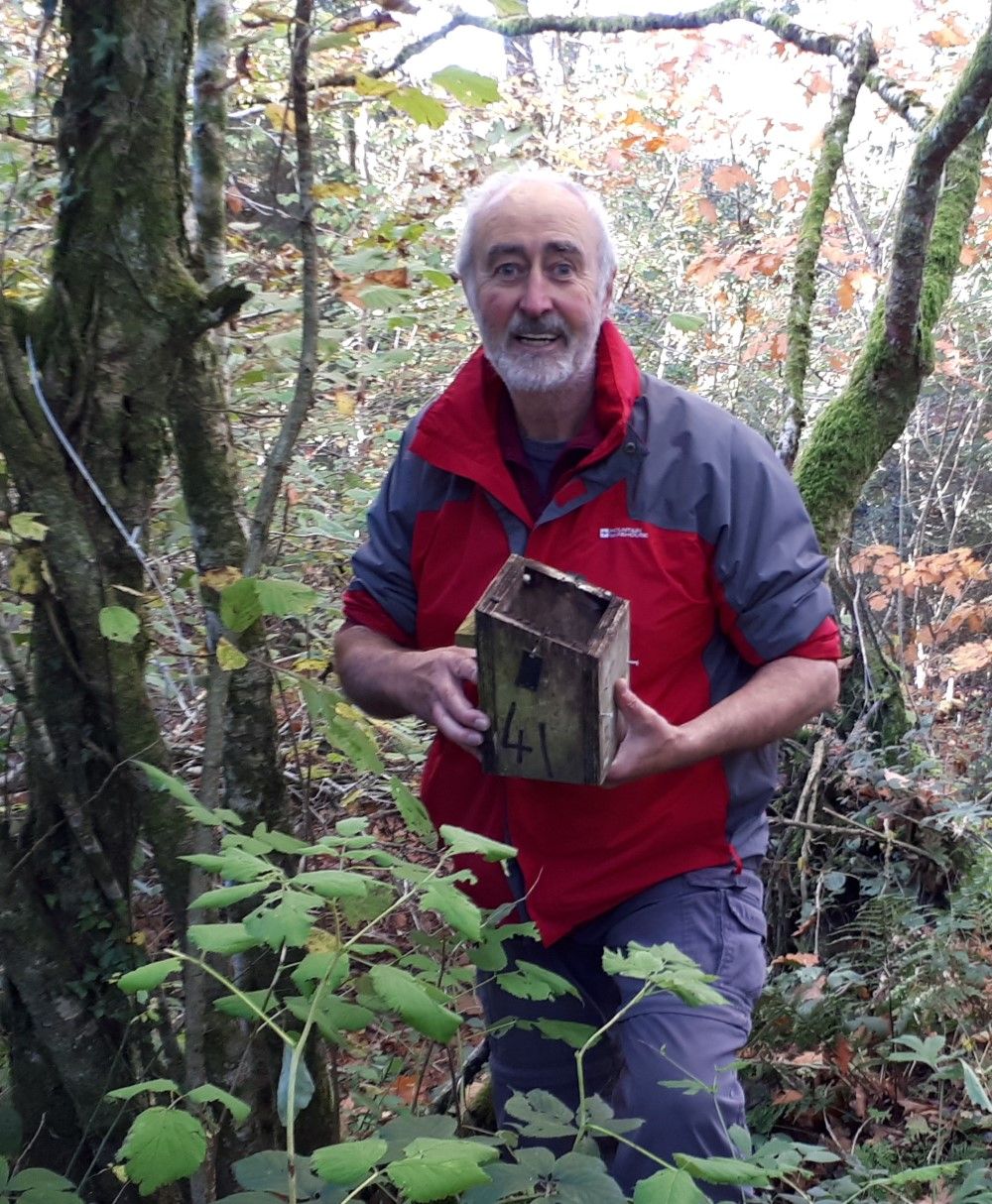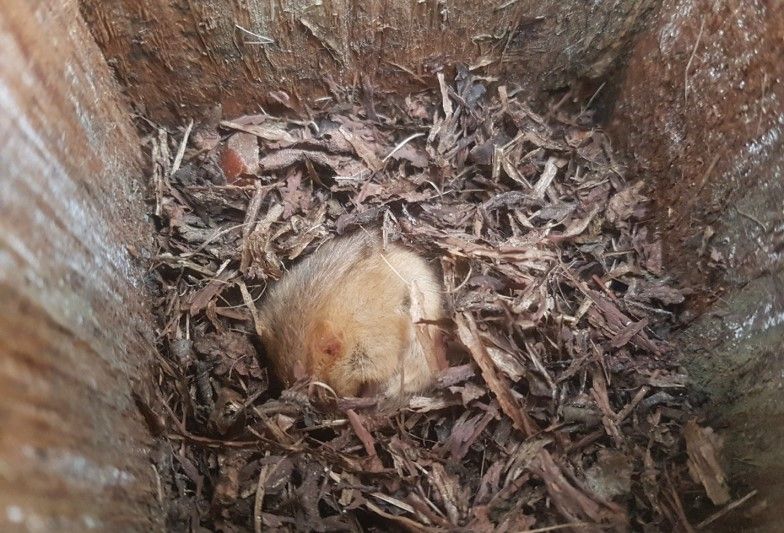Meet Dave Fowler: dormouse monitor
In this series, we chat to the dedicated staff members, conservation partners and volunteers at PTES. We find out why each of them chose a career in wildlife conservation, what they find rewarding about their work and what they love most about what they do.
Dave Fowler
Dormouse monitor in Camarthenshire
Tell us about yourself and how you got involved in monitoring dormice
Even though all my working life has been spent in the world of computers and technology, I have always enjoyed the great outdoors and nature. This includes doing volunteer conservation work, or citizen science projects as they like to call it these days. In the 1990s, while living in Canada, I participated in a marsh bird monitoring project in the Great Lakes Basin, a project run jointly by Canada and the US to determine the health of marsh bird populations in that part of the world.
On returning to the UK about ten years ago, I stumbled across the National Dormouse Monitoring Programme (NDMP) through my local Wildlife Trust. They were looking for volunteers to get involved with monitoring these charismatic little creatures. I first started participating in dormouse box checks in 2015, assisting other licenced dormouse monitors at three different sites in the Crychan Forest in Carmarthenshire. After seeing, and holding, my first dormouse I was hooked! And after three years of hands-on training, plus a course or two, I obtained my own licence from Natural Resources Wales (NRW) in February of 2019.
Tell us about the area you monitor
The Crychan Forest is a large (>1700 hectares) woodland located mostly in Carmarthenshire and managed by NRW. A lot of it is conifer plantation for commercial forestry purposes, but there are some large tracts of mixed hardwoods, which are ideal dormouse habitat. The two sites that I was primarily involved with were in an area of the forest known as Cefn Farm, although I also assisted at a third site at Halfway.
Rather unfortunately, we had to abandon the two sites at Cefn Farm because of essential felling work that had to be carried out by NRW due to larch and ash diseases. However, working closely with NRW we were able to identify a new site at Esgair Fwyog in another part of the Forest.
I have subsequently moved from mid-Wales to Shropshire, and I’m in the process of applying for an Natural England licence, so that I can continue to monitor sites closer to home. Having said that, I still return to mid-Wales every month to check my old site at Esgair Fwyog.
What’s the most fascinating encounter you’ve had with dormice?
My most memorable monitoring experience was, in fact, my last visit to my current site. We counted 34 dormice in total, including one box that contained 10 dormice. An adult pair and eight very active juveniles. I will never forget the sight of 10 dormice flying around inside the bag like lunatics. Fortunately, I had two very capable trainees with me to help me process them all.
Tell us something about you we wouldn’t expect from a dormouse monitor
When I’m not out playing with dormice, I like to get involved with other volunteer activities. While living in mid-Wales I was the main organiser of the World Bog Snorkelling Championships in Llanwrtyd Wells.
Can you help us reintroduce more dormice to the wild?
Header image credit Lorna Griffiths


